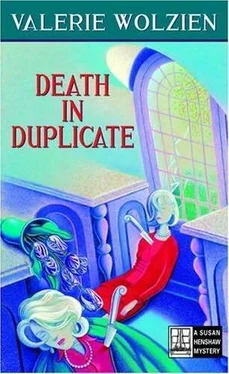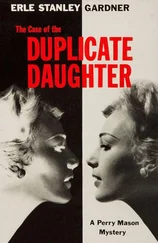“Don’t we all?”
“Sure, to a point, but Blaine ’s egocentricity is extreme. I don’t think she’s capable of seeing the other person’s-any other person’s-point of view.”
Kathleen put down her mug and stared across the table at her friend. “What happened?” she asked.
Susan put down her fork, took a sip of coffee, and tried to answer the question.
“We were once close… well, not close, but we spent time together. I didn’t know a lot of people in town in those days…” She stopped for a moment and then started again.
“I met Blaine… she introduced herself to me about two weeks after we moved to town. She was living just around the corner back then, in the big split-level the Sanders now live in.”
Kathleen nodded to show she knew what house Susan was talking about and Susan continued. “She came by to be neighborly. That’s what she said and I appreciated it although the house was a mess and-well, you know me…”
“You want everything to be perfect when you have company.”
“Yes. And I was new in town and didn’t know much about the area. Anyway, I was thrilled to be meeting people. And Blaine explained that she was an important person in Hancock.”
“What do you mean?”
“She was on the membership committee of the Field Club, a member of the town zoning board, and she was running for a seat on the town council-which she won that year with my help.”
“Your help?”
“I volunteered to make phone calls for her.”
“That day?”
“Yeah, that very day.”
“I’m afraid you’re not exactly filling me in on all the details.”
“Sorry. To tell the truth, I still feel like a fool when I think about it.”
“Why? Did you later learn that she was completely unqualified for the job?”
“No, I later learned that calling strangers is a horrible job that no one in their right mind would volunteer for… and that I was completely unprepared for. I called hundreds of homes and asked them to vote for someone I hardly knew and then, if they asked questions about Blaine ’s qualifications, I had a sheet of prepared answers to read to them. It took hours and hours, and I was made to feel like a fool more than once because I knew almost nothing about the town then and I wanted desperately to get involved, to feel as if I belonged. It was my own fault. I shouldn’t have said I would do it.”
“Exactly how did you end up doing it?”
“Well, Blaine said she was running and I asked how the campaign was going and she probably-this was years ago, remember-said she needed to find volunteers to make phone calls, that it was an easy job, could be done from home in spare time.”
“And you leapt right in and volunteered to do it. I know you, Susan. That sounds just like you.”
“Yes, I did. And, of course, it turned out to be a huge task. She gave me a list of three hundred households and said it was terribly important that I speak personally to at least one adult in each house. It took forever and, of course, I couldn’t do it in my spare time-when the kids were napping, for instance-because no one was home then. I had to call during dinnertime or right after dinner and the people I called were irritated by me interrupting their family time and sounded like it. It was awful.”
“And?”
“What do you mean?”
“You don’t describe someone as ruthless because they manipulated you into making a few hundred phone calls,” Kathleen said.
“Well, no. But, you see, Blaine didn’t care about getting elected as much as she cared about her business. She used her elected office to become better known in the state. I wasn’t helping create good government in Hancock. I was helping her become a real estate mogul. I should have refused to help.”
“Why didn’t you?”
“It sounds stupid-it’s not like I don’t have any will of my own, for goodness sake-but Blaine was so good at manipulating me. And I don’t think she set out to do it. She’s just so focused on herself and her goals and she can’t imagine why anyone wouldn’t be just the same. You know, she’s a bit like Nadine, although with ambition. Nadine could spend hours talking about herself as though her life, opinions, you name it, were of compelling interest to anyone she happened to be talking to. Blaine is the same way. She just happens to be more goal oriented.”
“And you ended up being taken advantage of.”
“Like an idiot.”
“Like a very nice person,” Kathleen corrected her.
“Like an idiot,” Susan repeated slowly. “I really thought I’d gotten a little backbone until right now. I can’t believe Nadine used me the same way her mother-in-law did years ago and that I didn’t even realize it. Damn.”
“Look, you can either spend years and thousands of dollars on therapy or just figure it’s in the past and forget about it. Besides, when you realized what Blaine was doing, you began to avoid her, right?” Kathleen asked, smiling.
Susan smiled back. “You know me-anything to get out of a confrontation. She moved to a bigger house on the other side of town.
“So what else did the paper say?” Susan added.
“Not too much else. The space was taken up by photographs of Nadine’s home. There wasn’t an obituary.”
“There will be tonight. Donald brought it over early this morning for me to look at.”
“Anything interesting?”
“Not really. Mostly an exaggerated telling of a pretty ordinary life.”
“That could be said about a lot of obituaries.”
“True.”
“You know, there’s really no reason-other than the unsolved murders on Perry Island -why Shannon should be considered a suspect in Nadine’s murder,” Kathleen said.
“Until some reporter or cop discovers the connection,” Susan said.
Kathleen frowned. “You’re probably right.”
“So all we have to do is investigate Nadine’s murder as well as three-or four-murders that took place on Perry Island over a year ago, while helping with the babies, not getting enough sleep, and doing all the extra things that houseguests demand.”
“You’re a modern woman. You can do it-with my help,” Kathleen said encouragingly. “So what do we do first?”
“I think I’ll go back to Perry Island and see if I can find out anything more.”
“Great. What do you want me to do?”
Susan looked up from the remains of her meal. “Isn’t it time you and Jerry thought about buying a bigger house?”
THERE WAS A BIT OF SPRING WARMTH IN THE SUNLIGHT AND Susan got out of her car and stood by the rail as the ferry chugged across the Sound to Perry Island. The water was the steely gray of winter, but willows on both the mainland and the island were showing the sharp yellow of new growth and the salty air felt fresh against her face.
“Are you perhaps on your way to P.I.C.C.?”
Susan hadn’t heard anyone approach over the roar of the boat’s diesel engine and she turned to discover an elderly couple standing at the rail nearby. “I… yes, I am. My mother is getting old…” She brushed her hair off her forehead and didn’t finish her explanation. Her mother, in fact, was probably younger than these people.
“It’s a very nice place,” he said to her.
The woman Susan assumed to be his wife reached out and placed one hand on Susan’s arm. “It is, you know. We looked at most of the nursing homes in this part of Connecticut before deciding on P.I.C.C. for Frank’s mother.”
Susan hoped she didn’t look as surprised by this statement as she felt. “Your mother?” she asked, and was immediately embarrassed by her rudeness.
But the gentleman only chuckled. “We live a long time in my family. My father passed a few months ago just six days short of his hundred and third birthday. Mother will be a hundred and one in June.”
Читать дальше












